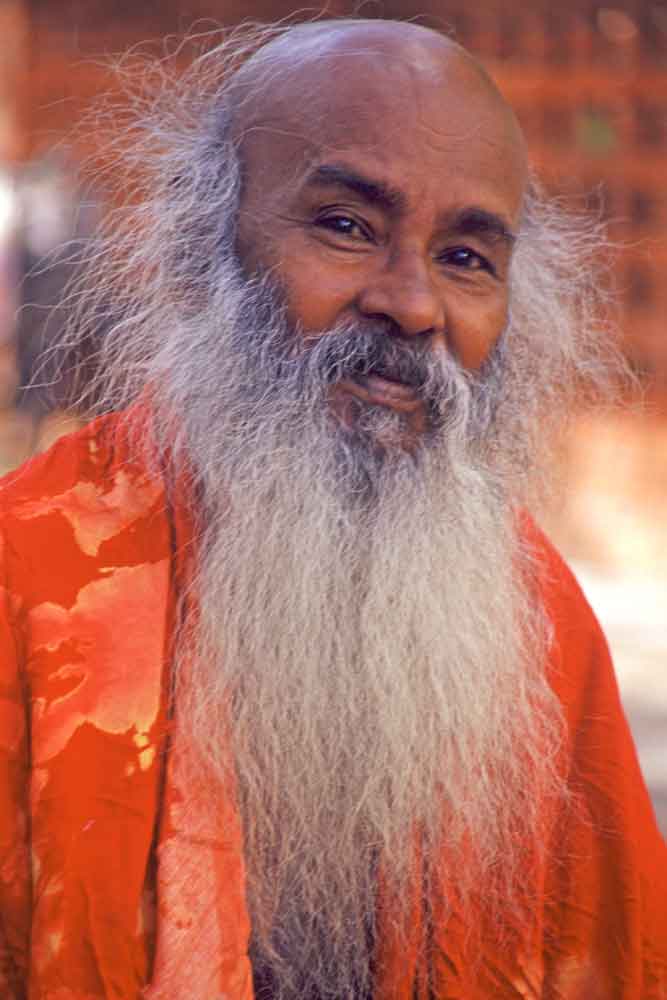Complete Works of Swami Vivekananda
|
||
The ninth and final volume was published 45 years after the eighth volume was published in 1951. However, the publishers came across more material that required a separate volume. Hopefully this will be the last volume, provided they don’t unearth more materials attributed to Vivekananda.
With this ninth volume of Vivekananda’s Complete Works, I will be
completing this series on Swami Vivekananda. It has been a great privilege to
present the teachings of one of the greatest saints India has ever produced. மரணத்தின் தருவாயிலிருந்த விவேகானந்தர் சொன்ன இந்த வார்த்தைகள் இந்த ஒன்பதாவது தொகுதியில் பதிவாகியுள்ளது:
Death has come to my bedside;
I have been through enough of work and
play;
Let the world realize what contribution
I have made;
It will take quite a long time to
understand that.
(p 402)
1) Western
Christianity and Eastern Hinduism
பிறப்பென்னும் பேதைமை நீங்கச் சிறப்பென்னும்
செம்பொருள் காண்பது அறிவு. (குறள் 358)
… என்கிறார் வள்ளுவர். அதாவது “If you want to remove
the folly of rebirth, the wise would realize that unique Reality” என்று பொருள். இந்த மாணாப் பிறப்பை நீக்க ஒரே வழி, மெய்ப்பொருளைக் காண்பதுதான் என்று இந்திய நாட்டில் உறுவான எல்லா மதங்களும் எடுத்துறைக்கின்றன. விவேகானந்தர், “மோட்சம்” என்பது கிருத்துவ மதத்தினரிடமிருந்து இந்து மதத்தில் எவ்வாறு வேறுபடுகிறது என்பதை விளக்குகிறார்.
Christians believe that Jesus died to
save them.
With you it is a belief in a doctrine,
and this belief constitutes your salvation.
With us, doctrine has nothing whatever
to do with salvation.
Each one may believe in whatever
doctrine he likes or in no doctrine.
With us realization is religion, not
doctrine.
What difference does it make to you
whether Jesus Christ live at a certain time?
What has it to do with you that Moses
saw God in a burning bush?
The fact that Moses saw God in the
burning bush does not constitute your seeing Him, does it?
If it does, then the fact that Moses ate
is enough for you; you ought to stop eating. (p. 278)
மேலும்…….
The Christian says their God took the
form of a dove and came down,
and that they say is not mythology, but
history.
The Hindu says his god is manifested in
a cow
and that he says is not superstition,
but history. (p. 487)
Western languages declare that man is a
body and has a soul.
Eastern languages declare that he is a
soul and has a body.
(p. 425)
மேலும், கோயில் பழக்கத்தை ………
That drill business in temples and
churches –
kneeling down at a certain time,
standing at ease,
and all that drill nonsense, all
mechanical,
with the mind thinking of something else
–
All this has nothing to do with
real religion (p. 232)
2) Krishna,
Buddha, Christ and Mohammed
மறைமொழி காட்டி விடும். (குறள் 28)
அதாவது, இவ்வுலகில் வாழ்ந்த சான்றோர்களின் பெருமையை நிலைநாட்டுவது அவர்களது அறவழி வந்த நூல்களேயாகும் என்பதுதான் இதன் பொருள். விவேகானந்தர் நிறைமொழி மாந்தர் பெருமையை பல இடங்களில் சுட்டிக்காட்டுகிறார் இவ்வாறு:
I have a personal superstition – it is
nothing, you know, but a personal superstition!
That the same soul who came once as
Buddha, came afterwards as Christ. (p. 412)
As to Krishna, whether or not he ever
lived, I do not know.
A great many stories are told of him,
but I do not believe them.
I doubt very much that he ever lived and
think it would be a good thing if he never did.
There would have been one less god in
the world. (p. 276)
Buddha and Mohammed, alone amongst
religious teachers,
stand out with historic distinctness
–
Having been fortunate enough to have,
while they were living,
enemies as well as friends. (p. 378)
3) Imitations
in life
மழித்தலும் நீட்டலும் வேண்டா உலகம்
பழித்தது ஒழித்து விடின். (குறள் 280)
அதாவது, “நீ இவ்வுகம் கண்டிப்பதைத் தவிர்த்தால், மொட்டையடிப்பதும்,
தாடி விடுவதும் தேவையில்லையப்பா”, என்கிறார் வள்ளுவர். நம்மில் பலர் மற்றவர்களின் நடை உடை பாவனைகளை காப்பியடித்து வாழ்வதைக்கண்டிருக்கிறோம். இதை நாம் பெரும்பாலும் மதசார்புடைய நபர்களிடம் காண்கிறோம். உதாரணமாக, இஸ்லாமிய நன்பர்கள் பலர், குல்லாவுடனும், நீண்ட தாடியுடனும், முக்கால் நீள பேண்டையும் அணிந்துகொண்டு நடப்பதைக்க கண்டிருக்கிறோம். Moreover, the commonest name you will find among
Muslims is “Mohammed”, the name of their prophet. These are nothing but trying
to imitate whatever the religious founder did. விவேகானந்தர் இப்படிக் ‘காப்பியடிப்பதை’ வன்மையாகக் கண்டிக்கிறார். He says in volume IX, there is no problem in having
an ideal in life, but not a human ideal.
It is very good to have a high ideal,
but don’t make it too high.
A high ideal raises mankind, but an impossible
ideal lowers them
from the very impossibility of the case. (p. 401)
A dozen lions will conquer the world,
not millions of sheep.
Men should not be taught to imitate a
personal ideal, however great. (p. 403)
Religion is not an imitation of Jesus or
Mohammed.
Even if an imitation is good, it is
never genuine.
Be not an imitation of Jesus, but be
Jesus.
You are quite as great as Jesus, Buddha,
or anybody else. (Volume I)
சரி, யாராவது விவேகானந்தரைக் காப்பியடிக்க நினைத்தால்…..? Realizing this possibility, he says…..
“Do not copy me. Kick the man who
imitates”. (p. 411)
4) Some
interesting quotes from Volume IX
- If you know everything, disturb not the childish faith of the innocent. (p. 278)
- Everyone thinks ‘my method is the best’. That is so, but it is the best for you. (p. 278)
- Your way is the best for you, but that is no sign it is the best for another. (p. 278)
- If you want to be religious, keep out of religious arguments. (p. 279)
==========================================================================================
I Home I
Claims
& Criticisms I Purpose
of this site I What is
new here? I Forthcoming
topics I
I Comparative Religion I Gospel of Vivekananda I
I Kural in 30 languages I Mathematical mircale in Kural I Introduction to the Kural I Kural and Worldly Wisdom I
I Comparative Religion I Gospel of Vivekananda I
I Kural in 30 languages I Mathematical mircale in Kural I Introduction to the Kural I Kural and Worldly Wisdom I
==========================================================================================






No comments:
Post a Comment